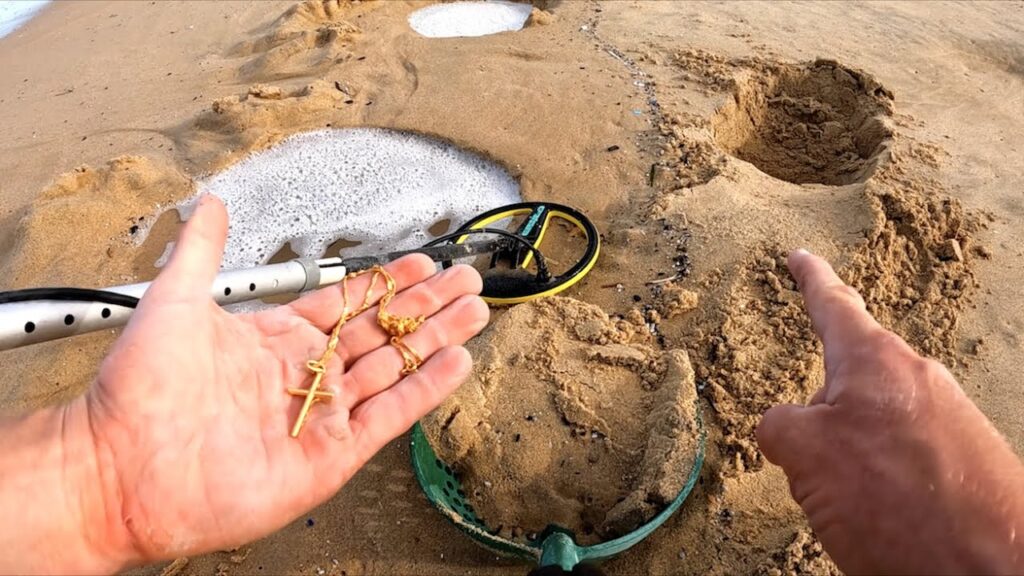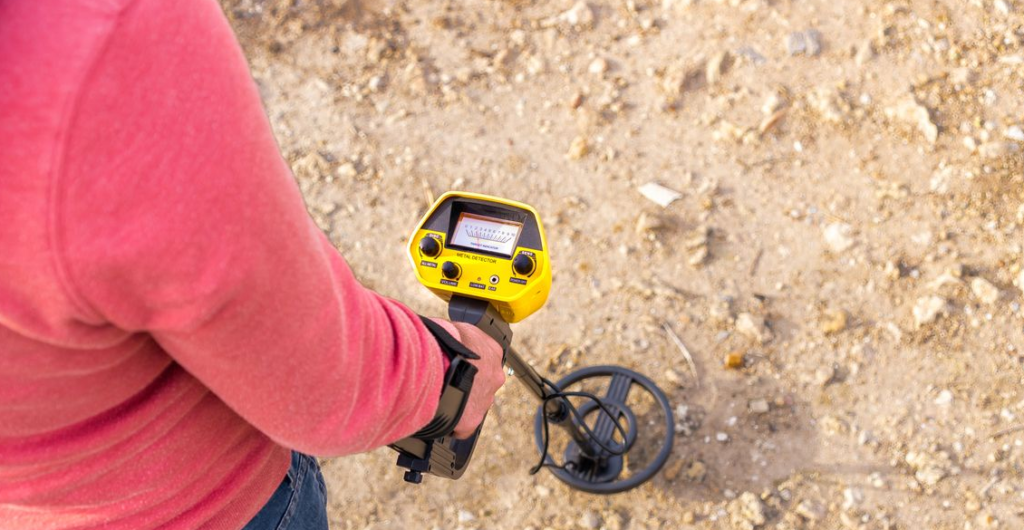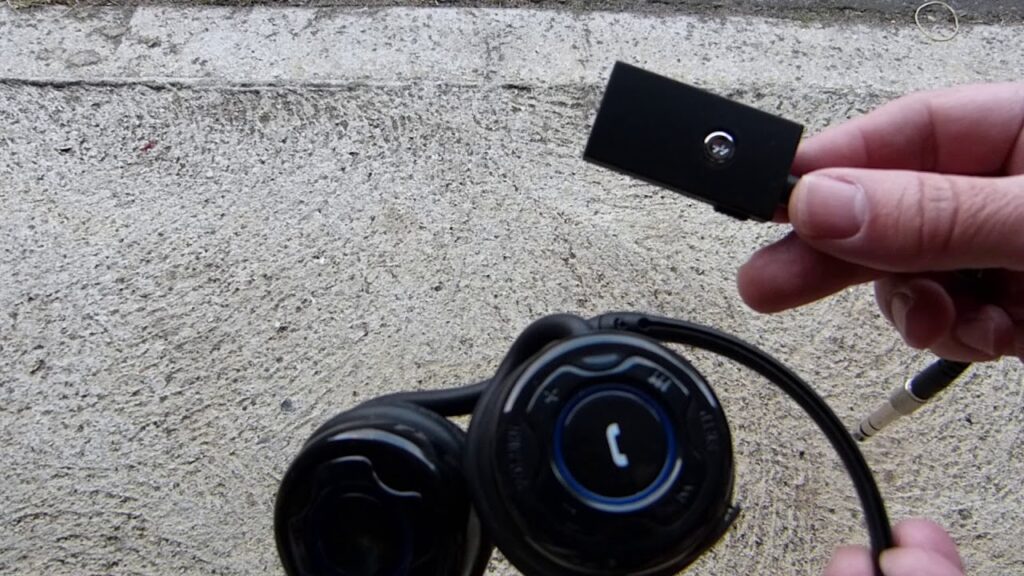
No matter what purpose you have, this article will help you understand the factors that impact the depth and strength of a metal detector.
A typical metal detector can detect 6-10 inches under the ground if the object is coin-sized. You will need a 2-box metal detector if you’re looking for precious metals like gold. But this vastly depends on many aspects including:
- The size of the object is one of the prime factors. Larger and thicker objects can be detected quickly and in deeper areas.
- The amount of discrimination is another factor. You won’t be able to detect deeper objects if your machine is not correctly set up.
- The metal composition of the object is also fundamental. Metals such as copper, silver, and brass are conductive. Other metals are not that much conductive such as stainless steel. Therefore, it is tougher to detect the second category of metals.
- Vicinity of the target object to other more significant metal objects in the same zone can affect the detection.
- The detector’s sensitivity settings are vital, as well. Smaller objects can be detected at ease if the sensitivity settings are right in your sensor.
How the Coil Type and Size Affect the Detector Depth?
Machines come with an average coil. But you can replace them with a different coil as per your needs. The coil size influences the sensitivity and the depth the metal detector can effectively detect.
If you go for larger coils, then your detector will be able to identify deeper objects. But the sensitivity to small objects will decrease subsequently.
If you choose a smaller coil, then it will become more sensitive, but you will have to compromise with the detection depth then.
Smaller coils are easy to handle and light-weight as well. So choose your coil size after considering your target object size.
Does Mineralized Soil Affect the Metal Detector Depth?
To put it simply, Yes! The soil quality will affect the metal detection depth. Mineralized soil can be a big issue and cause some real troubles.
It can damage your machine if you are not aware of the effects and risks involved. Mineralized soil has its own magnetic response, which can be detected with a metal detector.
If your machine is not crafted to be used in such land, then it cannot work deeper. The more mineral present in the soil, the less deeply the machine will work. If the ground is full of iron, then it will affect the detecting range or even the depth
Does Wet Ground Influence the Metal Detector Depth?
No detector prefers wet grounds over dry grounds. Wet grounds amplifies the conductivity of the object you are targeting.
Apart from that, damp ground impacts depth sensitivity as well. However, regularly moist ground, lets you detect submerged coins easily, especially after heavy rain.
If you have to discover something in the rain, then always go for a waterproof detector. It is imperative to pick an appropriate metal detector for wet ground
Does the Metal Detector’s Frequency Impact its Depth?
The frequency of a detector is the number of electromagnetic waves it gives to detect the metal. Machines with a low frequency usually have a lengthier wavelength.
These waves can penetrate the ground more quickly. A low-frequency detector will not serve your purpose if you are searching for smaller objects.
They can detect objects with high conductivity. The best option for a beginner is to choose a multi-frequency metal detector.
But it would help if you learn the ways to use it to avoid disappointment. To further enhance the depth and detecting capabilities, keep the motto of ‘Low and slow’ in mind.
Hold the search coil steadily, parallel to the ground and sweep in slow strokes. possible, Ensure that the coil is an inch above the ground to maximize the search coil’s frequency field.
Final Thoughts on How Deep can a Metal Detector Detect
Evaluate all the factors and aspects mentioned above before choosing the metal detector. The depth of the metal detector depends on your purpose and the object you want to detect. So considering size, metal, settings, moist, and mineral of the ground is highly recommended


